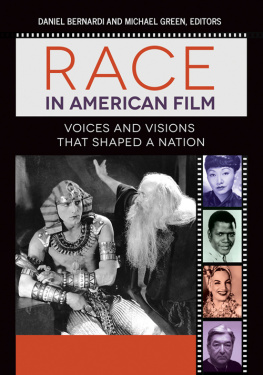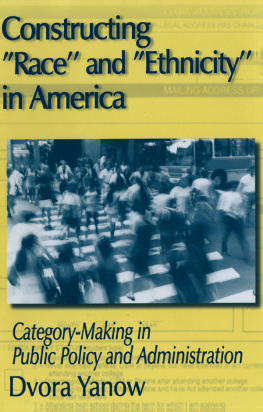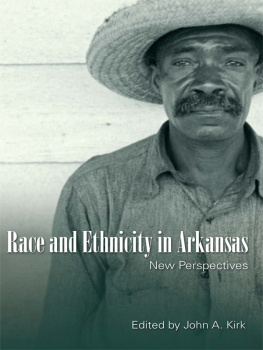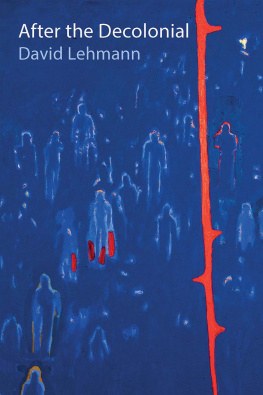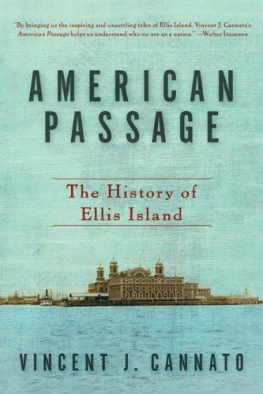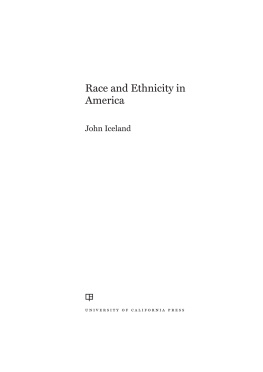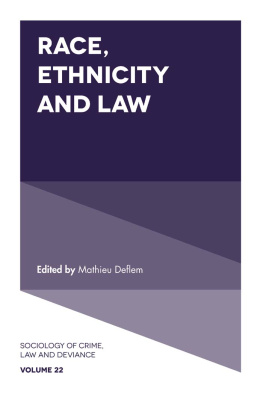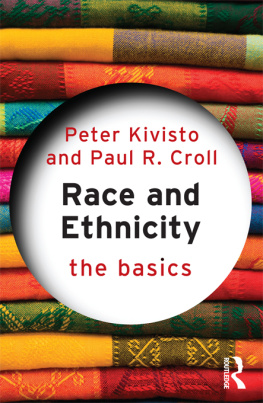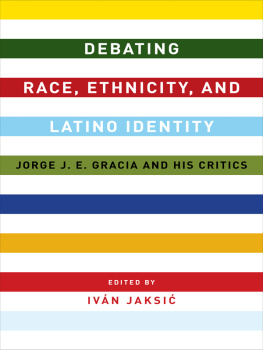
Race and Ethnicity in Latin American History
The Spanish and Portuguese empires that existed in the Americas for more than 300 years resulted in the creation of a New World population in which a complex array of racial and ethnic distinctions were embedded in the discourse of power. During the colonial era, racial and ethnic identities were publicly acknowledged by the state and the Church, and subject to stringent codes that shaped both individual lives and the structures of society. The legacy of these distinctions continued after independence, as race and ethnicity continued to form culturally defined categories of social life.
In Race and Ethnicity in Latin American History, Vincent Peloso traces the story of race and ethnicity in Latin America from the sixteenth century to the contemporary period. In a short, synthetic narrative, he lays the groundwork for students to understand how the history of colonial racism is connected to the problems of racism in todays Latin American societies. With features including timelines, plentiful maps and illustrations, and boxes highlighting important historical figures, the text provides a clear and accessible introduction to the complex subject of race and ethnicity in the history of Latin America.
Vincent C. Peloso is Emeritus Professor of History at Howard University.
First published 2014
by Routledge
711 Third Avenue, New York, NY 10017
and by Routledge
2 Park Square, Milton Park, Abingdon, Oxon OX14 4RN
Routledge is an imprint of the Taylor & Francis Group, an informa business
2014 Taylor & Francis
The right of Vincent C. Peloso to be identified as author of this work has been asserted by him in accordance with sections 77 and 78 of the Copyright, Designs and Patents Act 1988.
All rights reserved. No part of this book may be reprinted or reproduced or utilized in any form or by any electronic, mechanical, or other means, now known or hereafter invented, including photocopying and recording, or in any information storage or retrieval system, without permission in writing from the publishers.
Trademark notice: Product or corporate names may be trademarks or registered trademarks, and are used only for identification and explanation without intent to infringe.
Library of Congress Cataloging-in-Publication Data
Peloso, Vincent C.
Race and ethnicity in Latin American history / Vincent C. Peloso.
pages cm
1. Latin AmericaRace relationsHistory. 2. Latin AmericaEthnic
relationsHistory. I. Title.
F1419.A1P39 2013
305.80098dc23
2013020621
ISBN: 978-0-415-99152-0 (hbk)
ISBN: 978-0-415-99153-7 (pbk)
ISBN: 978-0-203-12224-2 (ebk)
Typeset in Dante MT
by Apex CoVantage, LLC
For my love, my life partner, my muse, Caroline, for everything; and for Gianna, our intrepid granddaughter.
And to the memory of Rayford W. Logan, who wanted something like this.
Contents
Figures
.
.
.
.
.
.
.
.
.
.
.
.
.
.
.
.
.
.
.
.
.
.
Maps
.
.
.
.
.
.
.
.
.
Many years ago, when I first started teaching courses on Latin American history, I encountered the problematic themes of race and ethnicity. As a historian, I confess that I concentrated on getting issues of economic and political history right, and I gave minimal attention to the structure of society and the problems of understanding culture. No doubt this handling of the subject reflected my training and my appreciation of the historiography of the field, which seemed barely adequate in those areas. Although I had studied some anthropology in graduate school with some of the leading anthropologists of the period, I felt little need to include comments about patriarchy or family or women in my lectures. Of course, my thinking also had to do with the state of my knowledge, which, I came to realize, was quite narrow. Over the ensuing decades as I matured as a historian, I listened to the questions my students raised in class. The historical literature in the field changed as well. The findings of sociology and anthropology especially gained the attention of Latin American historians, and I think I benefited from these changes.
By the late 1970s I found myself giving more attention to topics of greater social significance. I scoured the literature for a better understanding of the impact the early missionaries made on the indigenous people of Latin America, and likewise the profound resonance of local culture in the thoughts and behavior of the Europeans, particularly the missionaries, but the bureaucrats, the private citizens, and those who were not there of their own choosing as well. I refer here to the Africans who, imported as labor, contributed to the remaking of the cultures of the region in ways as enduring as colonialism itself. It also became important to distinguish between the Africans, the first generation of enslaved people, and the creoles, their descendants, who shared that condition with the descendants of the Europeans. The creoles were born in America, and their knowledge of Africa derived from the stories and demonstrations handed down to them by the Africans who both preceded and followed them. Their homeland experiences were preserved in the celebrations and rituals they performed on special days throughout their lives.
Colonial society was shaped mainly by the existence of a weak colonial government and a powerful upper class of encomenderos and their descendants. That was only the tip of the iceberg. Gradually, issues of race and ethnicity crept into my thinking. By the late 1980s, race-ethnicity had become an overriding theme in the classroom, and a historical literature had appeared written by social historians who had a detailed grasp of the colonial period, the years 14921825, when Portugal and Spain governed Latin America and Iberian (meaning Spanish and Portuguese together) culture made an indelible imprint on the peoples who survived Latin American colonialism.
Much less well represented in the historical literature was the theme of race and ethnicity after Latin American independence. True, Magnus Mrner had made an indelible impression by selectively exploring the race-ethnicity issue up to 1870, but his explorations of the republics were not firmly grounded. Mrner realized that his examination, while based solidly on detailed research up to the time of independence, was forced to rely far too often on conjecture about events that occurred after the Latin American countries became independent. Little research was available, for example, about the Haitian independence movement and its consequences for the wider Latin American region. Nor was much known at that point about Afro-Colombians, Afro-Ecuadoreans, Afro-Peruvians, or for that matter, the role of Afro-Mexicans in the shaping of Mexican society after 1825. Mrner also found it wise to end his survey before the great migrations of the critical 18801930 era.
Scholars have given attention to race and ethnicity in Latin America for a long time. At first, in the nineteenth century, the attention was a product of curiosity and smugness, and it often displayed North American contempt for Latin American culture. In the middle of the twentieth century scholars began to realize that racial and ethnic differences complicated politics in Latin America. As mestizos and others began to exhibit interest in gaining power through political participation, race-ethnicity questions surfaced in scholarship. By World War II, Gilberto Freyre had published his highly influential studies of Brazilian society, the best known of them translated as The Masters and the Slaves (1937), and right after World War II Frank Tannenbaum startled historians of the region by declaring in his study, Slave and Citizen: The Negro in the Americas (1947), that Spanish management of African slavery in Cuba had been far less harsh on those enslaved there than was true of slavery in the United States. To add salt to the wound opened up on liberal backs, Tannenbaum attributed the relative mildness of Latin American slavery to the ameliorative role of the Roman Catholic Church. Meanwhile, anthropologists working in the 1930s in Mexico, Guatemala, and the Andes with the descendants of the Maya, the Incas and other native American groups, likewise produced controversial theories that would guide scholarship in explaining differences among those peoples. The scholars looked at many factors, including language, location, similar experiences, leadership, warfare, the role of women, and farming practices, to name a few, to explain cultural differences and similarities among a wide range of groups. Race and ethnicity thus entered the language of Latin American history.



